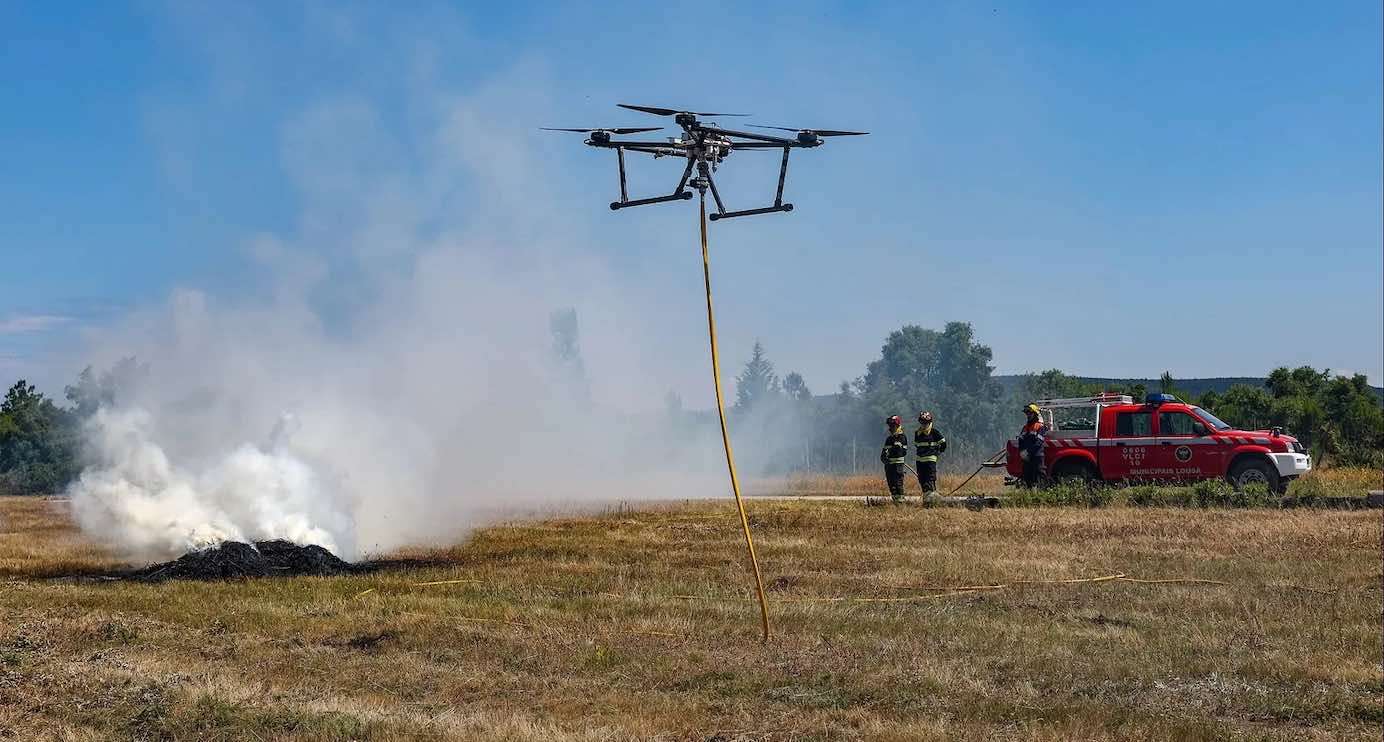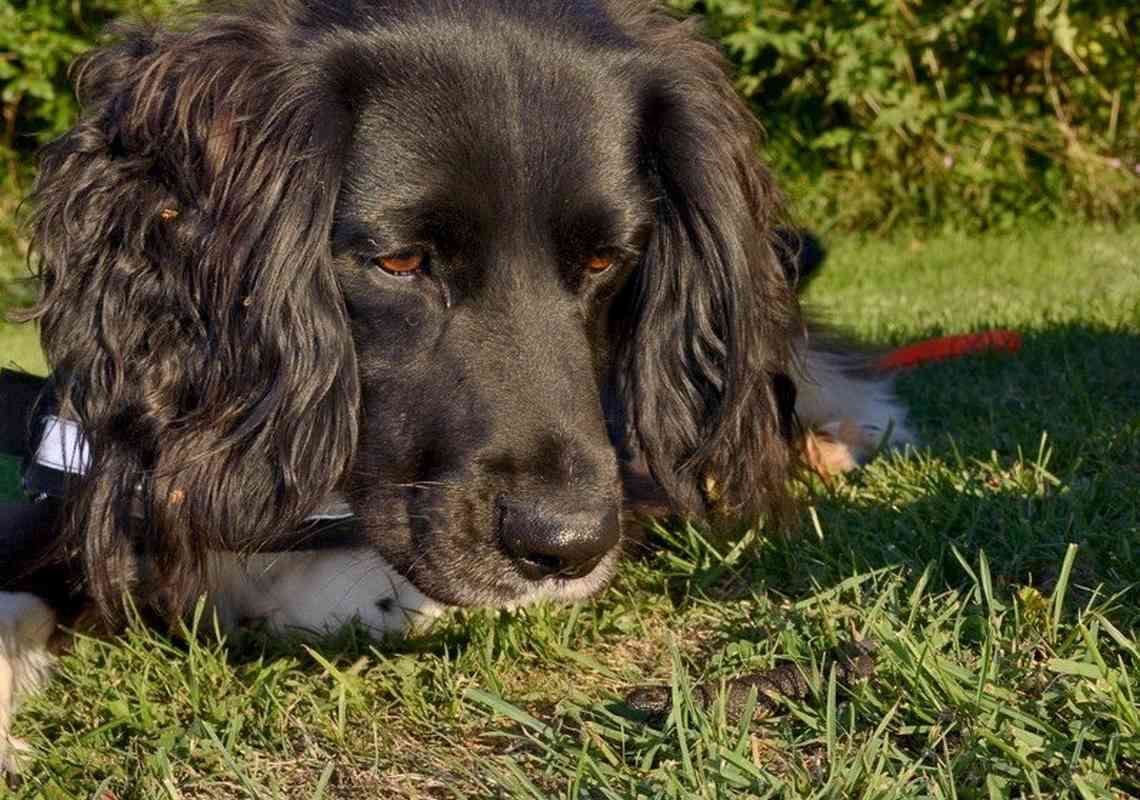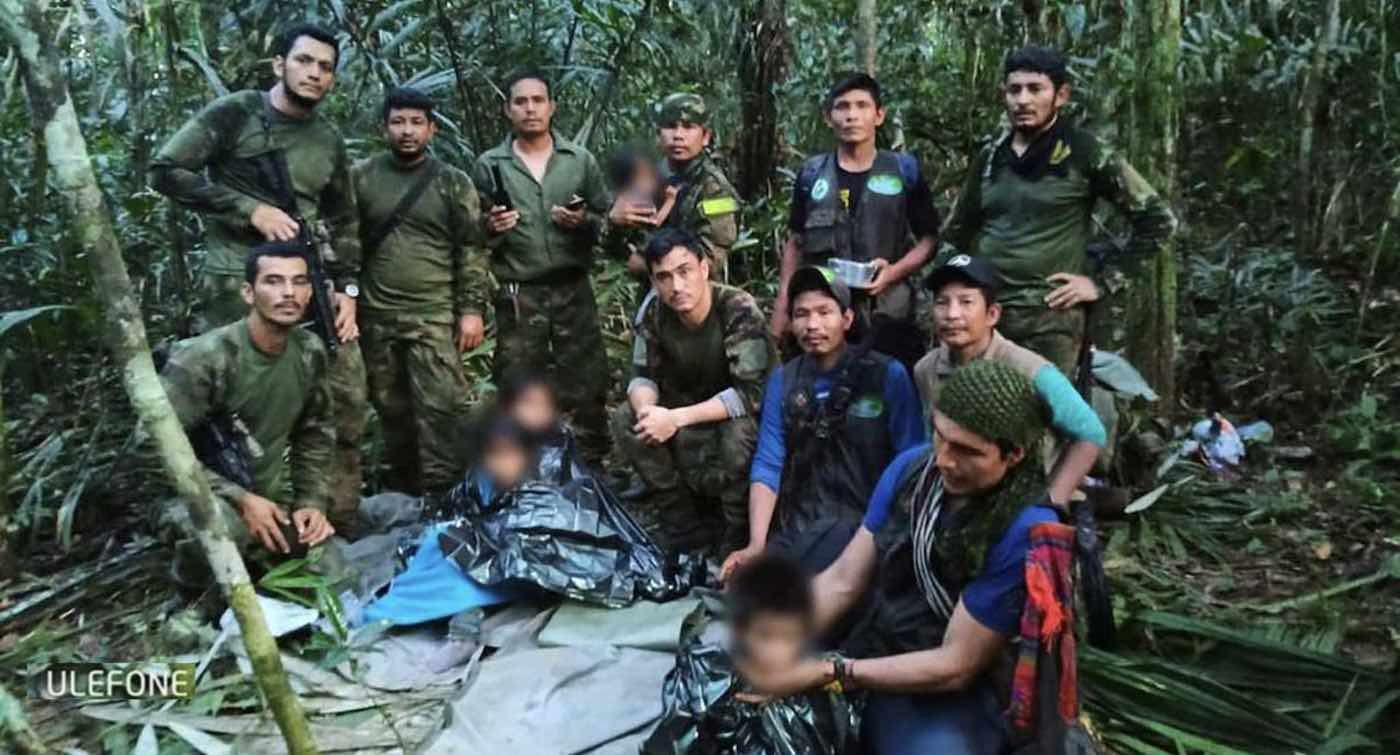In one of Europe's technical centers for firefighting research, a nimble drone that can carry a fire hose is being tested for quick-response firefighting.
Hovering 164 feet above a potential blaze, a pair of symmetrical jet streams can channel the water from a nearby fire engine onto mountainsides where the bulky automobile can't get.
In a demonstration video, a pile of burning roadside brush the size of a 4-door sedan was snuffed out by the jets in about 15 seconds.
Called SAP (for "ported nozzle system" in Portuguese) the device took 4 years to manufacture at the University of Coimbra's Forest Fire Research Laboratory.
Certain parts of Portugal have been scorched recently, more so than usual, and the firefighters working at Coimbra are looking for quicker, more flexible responses to combat small fires before they become large blazes.
Science has shown that the greater a nation's abilities to target and contain small fires, the statistically fewer are their larger ones. This type of drone could be a critical tool for quick and early fire control.
It's designed to be user-friendly and as light as possible (46 pounds or so). While it's limited in range to the length of its hoses, the developers believe it will be ideal for fires that are dangerous to approach such as those created by chemicals or explosives.
Currently, the durations of droughts across many parts of the world have reached short-term records, leaving many forests in North America, Australia, and Southern Europe vulnerable to blazes.
Reporting on the subject, the BBC adds that another pair of eyes in the sky—satellites—are becoming one of the most important tools for firefighters, as they can scan forest reserves for the early stages of wildfires, as well as use smart-computing to create a picture of the wind conditions.
The development comes as New York City's air quality was suddenly made the worst in the world after winds blew the smoke from Canadian wildfires down across the Mid-Atlantic.
SHARE This Awesome Piece Of Kit With Your Friends In Firerprone Areas…










Be the first to comment